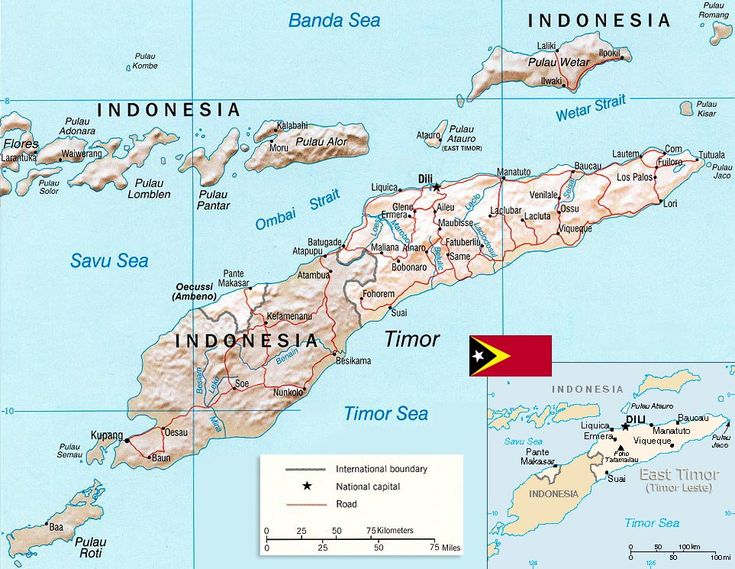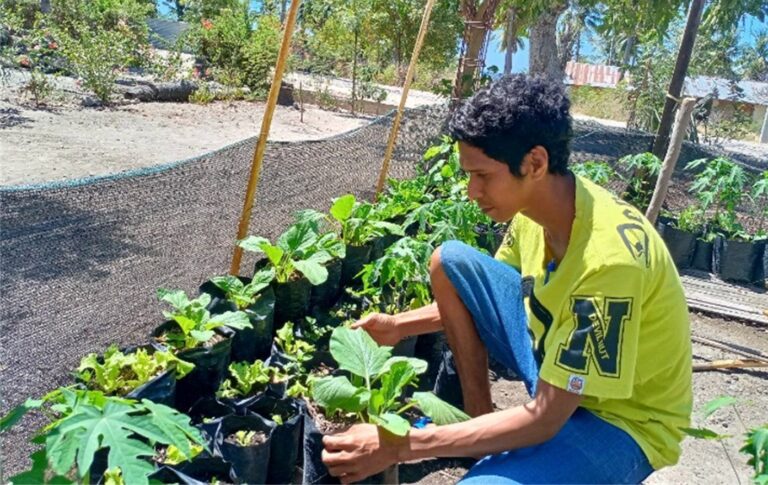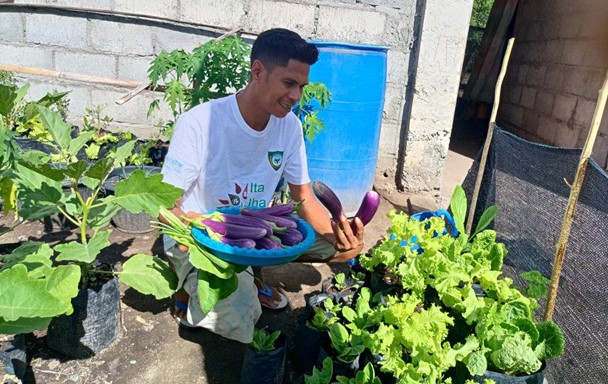07 Dec Community-Based Land and Soil Conservation on Atauro Island, Timor-Leste
Tara bandu is the customary law that manages the relationship between humans and between humans and natural resources in Timor-Leste. After successfully implementing Marine Protected Areas (MPAs) and Locally Managed Marine Areas (LMMAs) through tara bandu traditional rules, Atauro Island’s community members, Non-Governmental Organizations (NGOs) and the Timorese government successfully started to implement water conservation and permaculture projects to improve land conservation and food security.
Tara bandu rules, and traditional conservation practices, are used by local communities to manage natural resource extraction, including fishing and hunting, as well as conservation initiatives. Tara bandu (tara = hanging) and (bandu = prohibition) rules vary across ethnic groups in the country and geographical location. The implementation of rules happens through an official ceremony, attended by funders, police, policymakers, local authorities and lienai (traditional authority). Tara bandu rules guide community members in the use of natural resources in coastal and inland areas, such as harvesting certain species, as well as methods and equipment to be used. The practice of tara bandu is connected to a deep cultural understanding of the environment.

Source: https://www.welt-atlas.de/map_of_timor-leste_%28east_timor%29_6-621
Permaculture
The community leader of Vila Maumeta, Filipe Ximenes reports (as on his Facebook account) several conservation initiatives, including partnerships with NGOs and government. Permakultura Timor Leste (Permakultura Timor Lorosae – PERMATIL) helped to train community leaders and others by facilitating sustainable agriculture practices of the Permaculture systems aiming to conserve water resources, integrating pest prevention and agroforestry for farmers undertaking horticulture activities. Participants came from Vila Maumeta and Beloi villages, and learned how to prepare dried fertilizers and build terraces, among other agricultural techniques. The permaculture training was also attended by the Municipal Administrator and this training was organized by the NGO Roman through their program for climate change adaptation and mitigation. In addition to implementing agroecology practices, this training helped community members to learn techniques on how to improve water and timber conservation.
Permaculture allowed community members to produce organic fertilizers from animal dung (goats, cattle, pigs etc.) and leaves, including coconut, maize, coffee and several native plant leaves. By using local, readily available and free animal and plant leftovers, communities learned how to produce vegetable gardens in their communities, fight against malnutrition and improve food security.


Food production through permaculture practices. Photos from Filipe Ximenes Facebook page.
Water Source Conservation
Timor-Leste has a hot tropical climate with dry season from May to November, and wet season from December to April. Atauro Island is drier than the main island of Timor-Leste, with a longer dry season. As the Island doesn’t have rivers, water sources are very important to guarantee the water supply to local communities for drinking and watering their gardens, making conservation essential.
Building small water reservoir. Photos: Filipe Ximenes Facebook page.
These locally-led conservation and livelihood initiatives show how communities can take action to protect their environment and sustain livelihoods, despite a the lack of funding resulting from the post-COVID-19 economic crisis.


